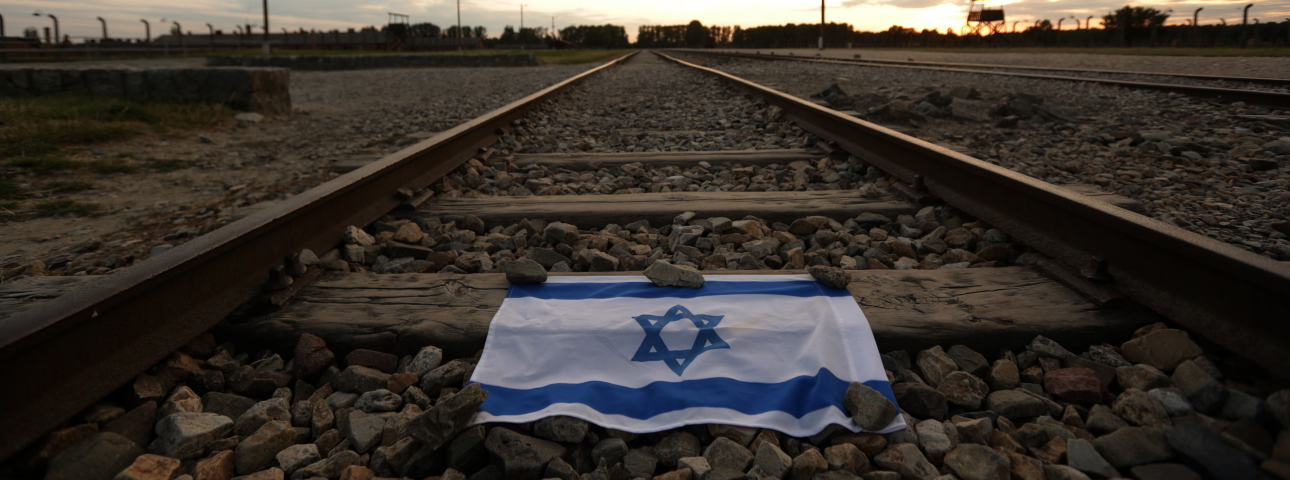Holocaust Remembrance Day 2022 - The Israeli Voice Index
As Israel prepares to mark Holocaust Remembrance Day (Thursday), IDI’s Viterbi Family Center for Public Opinion and Policy Research examined how Jewish Israelis relate to this solemn day.

Flash 90
Main Findings:
Is the Holocaust a unique event? Most of the Jewish public sees the Holocaust as a unique event and not as one of a series of acts of genocide that have taken place globally over the course of history. In comparison with data from 2019 on this topic, there is a decrease in the rate of Jewish Israelis who believe that the Holocaust was a unique historical event.
Segmentation by religiosity shows among Israelis who define themselves as ‘secular’ - less than half think that the Holocaust was a unique historical event (in 2019 - two-thirds). Members of the ultra-Orthodox community were most likely to see the Holocaust as a unique event (79%).
Segmentation by political camp: On the right, most believe that the Holocaust was a unique event, in the center about half, and on the left - just over a third.
Segmentation by ethnic origin shows a large majority of those who believe that this is a unique event among those who defined themselves as Sephardi, a smaller majority among those who defined themselves as Ashkenazi or a mixed average and a large minority among people from the Former Soviet Union.
The Holocaust– a unique event in world history? (%, Jewish Israelis, 2019, 2022)
Agree that the Holocaust was a unique event in world history (%, Jewish Israelis, 2019, 2022, by religiosity)
Agree that the Holocaust– was a unique event in world history (%, Jewish Israelis, 2022, by Political Camp)
Agree that the Holocaust– was a unique event in world history (%, sample of Jews, 2022, by ethnic origin)
Visiting Death Camps - Most Jewish Israelis have not visited the Nazi Death Camps in Europe. Among those who have, the highest proportion did so on a school trip. Due to an increase in educational trips to Europe over the years, the proportion of visitors in the younger age groups on school trips is much higher than in the older age groups. Among those who visited the camps, there was a higher proportion of those who believe that the Holocaust was not a unique event but part of a group of genocide events.
Visited Death Camps (%, Jewish Israelis)
Visited Death Camps (%, Jewish Israelis)
Visited Death Camps (%, Jewish Israelis, by age)
Was the Holocaust a unique event? According to participation in a visit to Death Camps (%, Jewish Israelis)
Whether and how Holocaust Remembrance Day is marked (%, Jewish Israelis, more than one answer can be stated)
Participation in Holocaust memorial events - a very large majority of the Jewish public attests to the fact that they rise and remain standing during the siren that sounds on the morning of Holocaust Remembrance Day. This is the most common form of commemoration and honoring of the memory of those who perished in the Holocaust. In second place - watching specially produced broadcasts that relate to the Holocaust.
Ultra-Orthodox Israelis are notable for their low level of participation from the various memorial events, although here, too, standing by the siren is the most common act of commemoration. Those who participated in the trips to the death camps are more likely to participate in Holocaust memorial events than those who did not.
Standing during the siren on the morning of Holocaust Remembrance Day (%, Jewish Israelis, by location on the ultra-Orthodox-secular continuum)
Do not take part in any of the various activities on Holocaust Remembrance Day (%, Jewish Israelis, by location on the ultra-Orthodox-secular continuum)
Whether and how to mark Holocaust Remembrance Day and a visit to the Death Camps (%, Jewish Israelis, more than one answer can be given)
Opinion and Policy Research at the Israel Democracy Institute. The survey was conducted via the internet and by telephone (to include groups that are under-represented on the internet) between April 24-25, 2022, with 601 men and women interviewed in Hebrew and 156 in Arabic, constituting a nationally representative sample of the adult population in Israel aged 18 and over. The maximum sampling error was ±4.08% at a confidence level of 95%. Field work was carried out by Midgam Research and Consulting Ltd. The full data file can be found at: https://dataisrael.idi.org.il.
